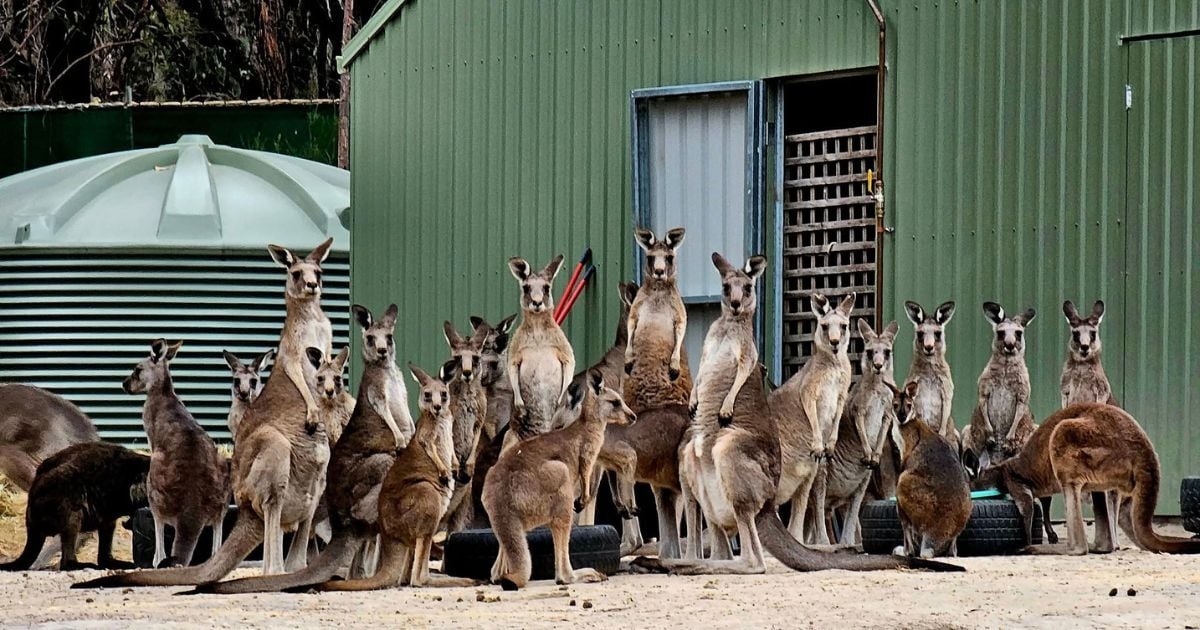Gas giants circle Victoria’s coast as lobsters face seismic threat
How does exploring for offshore gas impact Southern Rock Lobsters?
⏱️ This edition of the West Vic Brolga newsletter is a 7-minute read.
👋🏻 Hello Brolga readers!
Zara here, back with your Friday edition of the newsletter.
Today, we’re exploring the effects of offshore gas exploration, after the state government’s recent decision to open 45,000 square kilometres of ocean between Port Campbell and Warrnambool for applications to explore for gas.
I spoke to Friends of the Earth campaigner Stan Woodhouse and Apollo Bay Fisherman’s Co-op chair Markus Nolle this week to get a better understanding of what goes on during a gas company’s search for offshore gas deposits, and the impact on marine life and the environment.
“The problem is that we’ve been investing year after year on catching fewer and fewer lobsters, to try and rebuild the population, and in the background, these guys are pulling the rug out from under our feet.”
🚀 There’s plenty more ahead, so let’s crack in.
LATEST HEADLINES
The Victorian Government has opened the door to new fossil fuel exploration across 45,000 square kilometres of ocean between Port Campbell and Warrnambool, inviting petroleum companies to apply for a licence in the Otway Basin.
If approved, they would allow companies to conduct surveys and test drilling in waters off the Great Ocean Road, near the Bay of Islands Coastal Protection Reserve.
According to the University of Tasmania, seismic surveying, or seismic blasting, is the method used to search for new oil and gas, which involves firing intense sound signals into the ocean using air guns.
These signals, which can be detected thousands of kilometres from their source, penetrate deep beneath the seafloor and bounce back to acoustic receivers to reveal geological structures.
Friends of the Earth Melbourne campaigner Stan Woodhouse told the Brolga if seismic blasting goes ahead, people will first notice the survey vessels making laps of the area, then “a die-off of southern rock lobsters as the endless blasting damages their ability to coordinate.”
🦞75-year-old Apollo Bay fishing co-op in struggle of seismic proportions
When Markus Nolle retired as a fisherman in 2016, he invested his energy in ensuring Apollo Bay’s next generation of fisherfolk had a future. He now fears that future is being quietly wiped out beneath the waves.
The Apollo Bay Fisherman’s Co-op opened in 1948, originally catching barracuda for the Melbourne Fish Market.
By the mid-2000s, the barracuda were gone, and sharks and Southern Rock Lobsters were the big ticket catches. Ultimately, a cap on lobster catches was imposed to preserve populations of the species.
“What the science now tells us is that the blasting does significant and permanent damage to the rock lobsters; it mucks up their balance,” Nolle said.
The long-term effects on the lobster industry would be unknown for some years, as it “might take seven to nine years before you even see an impact, because we won't even see [an egg] develop into an undersized lobster for seven years”.
He said the combination of a lobster’s slow life cycle and the flow of the Bass Strait from west to east could ultimately affect lobster supply across the state.
As the 2024-25 summer bushfires tore through the Grampians, 20 joeys took refuge in Pam Turner’s living room in Victoria Valley near Dunkeld.
Video of the rescue went viral, but when the world moved on Turner was left to recover from the trauma while continuing to operate the Wildwood Wildlife Shelter for injured kangaroos on her property.
Turner has been caring for local wildlife for more than 30 years and has nursed her fair share of joeys back to health, but the impact of the fires was unlike anything she’d seen before.
Her property was ultimately spared, thanks to a sudden wind change and the efforts of firefighters.
“There were seven helicopters that were the water bombers and we’ve got a huge lake here, so they were taking water for days,” Turner said.
“For weeks later you could walk out the front door and you could just smell the burn, it smelt like smoke, so it was a very traumatic time for me and for the wildlife.”
Eight months later, the Wildwood Wildlife Shelter has secured $45,000 from the state government budget to build a climate-controlled hospital area, increasing the shelter’s capacity to care for injured wildlife in future bushfire events.

ON YOUR FEED
584 Victorians died from overdoses in 2024 — the highest number in 10 years. That’s according to the Coroners Court of Victoria’s latest report.
In the south-west, Warrnambool recorded six deaths, the highest there in a decade. Ballarat also recorded six, Colac Otway and the Southern Grampians three and there was one death in Corangamite.
Watch the video below for a full break down of the report.

Thanks for catching up with us this week at The West Vic Brolga.
As always, you can keep up to date in between newsletters by following us on TikTok, Instagram and Facebook.
I hope you enjoyed this issue, and I’d love to hear your thoughts.
Have a great weekend!
Zara
How did you like today’s newsletter? |








